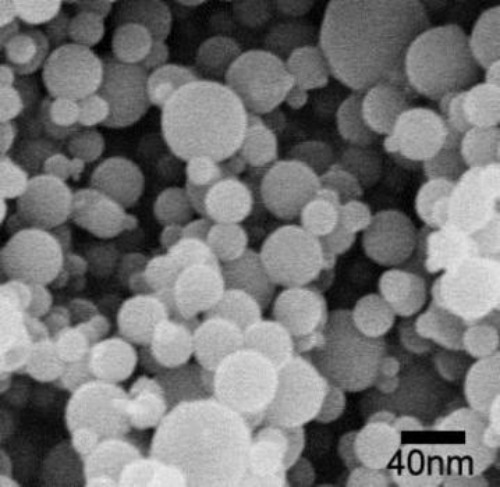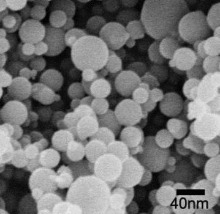Product Properties
Zinc ( Zn ) Nanopowder/ Nanoparticles ( 99.7%, 40~60nm)
Zinc ( Zn ) Nanoparticles Purity: 99.7% trace metals basis
Zinc ( Zn ) Nanoparticles Appearance: Black nanopowder
Zinc ( Zn ) Nanoparticles APS: 40-60 nm
Zinc ( Zn ) Nanoparticles SSA: ~12 m2/g
Zinc ( Zn ) Nanoparticles Morphology: spherical
Zinc ( Zn ) Nanoparticles Bulk density: 0.2-0.4 g/cm3
Zinc ( Zn ) Nanoparticles True density: 7.14 g/cm3
9920XH Zinc ( Zn ) Nanoparticles/ Nanopowder Specification for Download9920XH Zinc ( Zn ) Nanoparticles/ Nanopowder MSDS for Download
Health and Safety
| Hazard Statements | 4.3 |
| Transport Information | UN1436 |
| Suggest equipment | Eyeshields, Gloves, type N95 (US), type P1 (EN143) respirator filter |
Zinc ( Zn ) Nanopowder General Description
A black nanopowder composed of zinc in nanoparticles ranging from 40 to 100nm, zinc nanoparticles already play a role in the manufacture of any number of mundane consumer items, including cigarettes, food items, and more. Zinc nanopowder also shows potential for more intriguing
applications, due to unique anti-microbial, optical, and biomedical properties, making it a popular target for advanced nanomaterial research.
Znic ( Zn ) Nanopowder Applications
- • Rubber. Research indicates that the usage of nanoparticles in rubber manufacturing produces superior results in terms of uniform
- dispersion and performance of the end product, when compared against traditional usage of zinc. Mechanical and dynamic properties
improved substantially.
- • Filters. The anti-microbial and anti-bacterial properties of zinc nanopowder see it utilized extensively for the production of a wide array
of filters, including those found on cigarettes. Zinc nanoparticles have also shown promise as a part of a physical filtration system for
UV radiation, for example as a sunscreen ingredient.
- • Concrete additive. Zinc nanopowder is one of several nanoparticle materials being investigated for its potential as an additive in
self-compacting concrete and related products. Early research shows positive results on the flexural strength of the final product.
- • Coating. As with many nanomaterials, zinc nanopowder offers unique potential as a material for coatings; it’s unique properties as a
nanomaterial and its general properties as zinc combine to make it of exceptional interest for coating in fields such as medical implant
manufacturing, textiles, and other fields.










